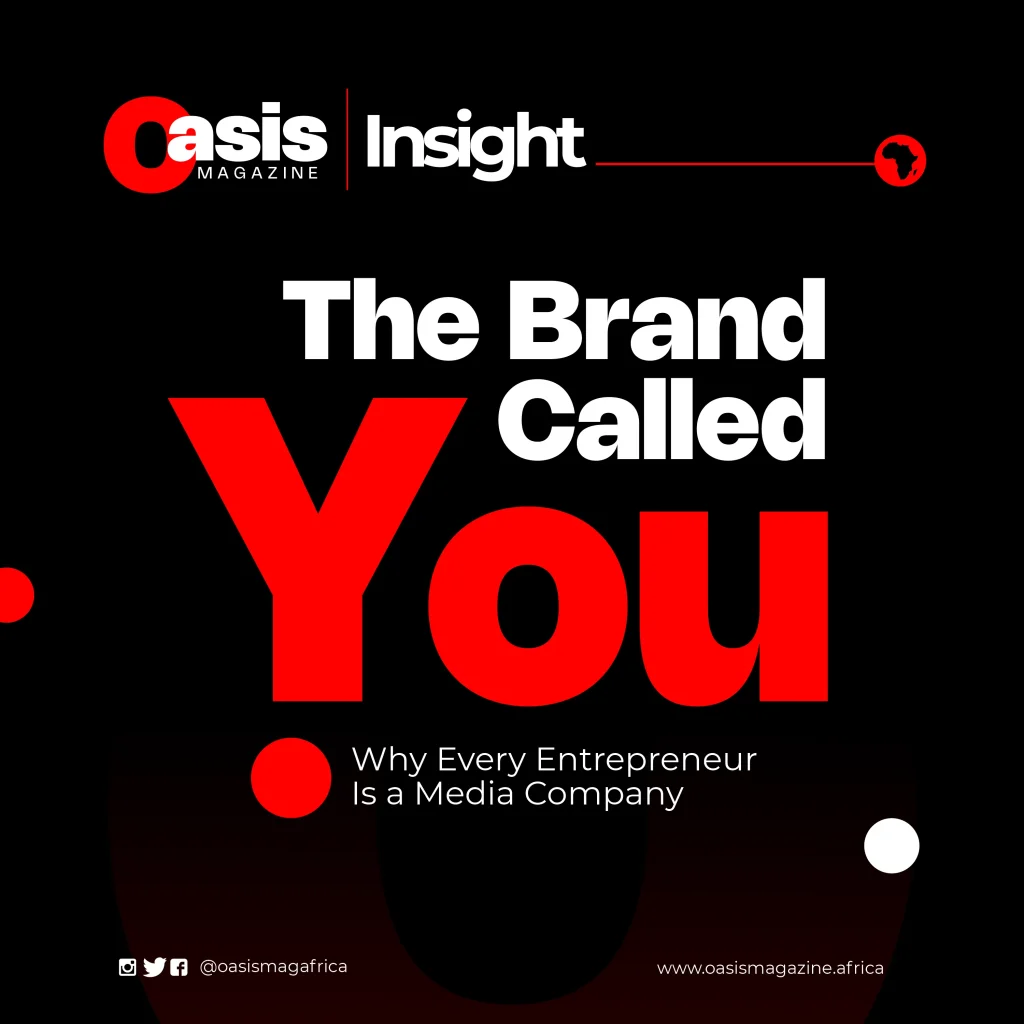Capital Beyond Money: Networks, Knowledge, and Narrative
True capital isn’t financial—it’s social and intellectual.
How visionary CEOs leverage reputation and ideas as force multipliers in the 21st century
Executive Summary: The Invisible Balance Sheet
In boardrooms from Lagos to London, a quiet revolution is underway. The most sophisticated CEOs no longer measure their advantage solely in cash reserves or market cap. They track a deeper, more resilient form of capital—invisible yet invaluable:
- Social capital: the trust, alliances, and influence that unlock doors money can’t buy.
- Intellectual capital: proprietary knowledge, foresight, and frameworks that outpace competitors.
- Narrative capital: the power to shape perception, define categories, and command attention.
Together, these form the triple helix of modern enterprise—a strategic asset base that compounds over time, withstands volatility, and attracts financial capital on its own terms.
Nowhere is this shift more evident than among Africa’s most transformative leaders, who—facing capital constraints—have mastered the art of leveraging non-financial capital to build globally competitive empires. Their playbook offers a masterclass for any executive navigating an era where ideas move faster than money, and reputation is the ultimate moat.
“In the 21st century, your network is your net worth, your knowledge is your leverage, and your story is your strategy.”
I. The Myth of Financial Primacy
For generations, capital meant cash. Investment meant equity. Value meant EBITDA. But in a world of algorithmic markets, democratized funding, and stakeholder scrutiny, money has become abundant—and often, undifferentiated.
What’s scarce?
- Trust in institutions and leaders
- Insight that anticipates disruption
- Credibility that turns vision into movement
As Nobel laureate Joseph Stiglitz observed: “The most important capital is the kind you can’t put on a balance sheet.”
Today’s most effective CEOs treat financial capital not as the foundation of power—but as fuel to be deployed only after social, intellectual, and narrative capital are in place.
II. Social Capital: The Trust Multiplier
Social capital is the currency of access, speed, and resilience. It’s not about who you know—but who trusts you enough to act with you.
Case Study: Ibukun Awosika – Reputation as a Boardroom Lever
As the first female chair of First Bank of Nigeria, Awosika didn’t rise through financial clout alone. She built decades of credibility as a speaker, author, and advocate for women in business. That reputation became her strategic asset:
- When she launched her private equity firm, investors came not for her balance sheet—but for her integrity and network.
- Global institutions like the World Bank and IMF sought her counsel not because of her title, but because of her perceived impartiality and wisdom.
Her social capital allowed her to de-risk partnerships, accelerate deals, and command premium terms—proving that trust is the ultimate arbitrage.
Lesson: In volatile markets, relationships are the first infrastructure.
III. Intellectual Capital: The Foresight Dividend
Intellectual capital is the capacity to see around corners—to synthesize data, context, and intuition into actionable insight. It’s not just R&D; it’s strategic imagination.
Case Study: Iyinoluwa Aboyeji – Knowledge as a Scaling Engine
Before co-founding Flutterwave, Aboyeji led Andela, a company that didn’t sell software—it sold African engineering talent as a knowledge export. His insight?
“The world’s next great developers aren’t in Silicon Valley—they’re in Yaba, and they’re undervalued.”
He didn’t just build a company; he built a knowledge ecosystem: training programs, open-source contributions, global remote work protocols. That intellectual infrastructure became Flutterwave’s talent pipeline, innovation lab, and cultural DNA.
Result? Flutterwave scaled across 33 countries not because of its capital—but because of its deep understanding of Pan-African payment behaviors and developer ecosystems.
Lesson: Proprietary insight is the hardest moat to replicate.
IV. Narrative Capital: The Story That Builds Markets
Narrative capital is the power to frame reality—to turn a product into a movement, a founder into a symbol, a region into a destination.
Case Study: Strive Masiyiwa – Nation-Building as Brand Strategy
Masiyiwa didn’t position Econet as a telecom company. He framed it as “Africa’s digital liberation project.” Through speeches, philanthropy, and media appearances, he wove his business into a larger story of African self-determination.
This narrative:
- Attracted diaspora investment during political turmoil
- Enabled partnerships with global tech giants seeking “authentic” African entry
- Turned customers into believers, not just users
His story became infrastructure—a shared belief system that lowered customer acquisition costs and raised brand resilience.
Lesson: In an age of noise, the clearest story wins.
V. The CEO’s Triple-Capital Playbook (2025)
Forward-thinking leaders are institutionalizing non-financial capital:
| Capital Type | How Top CEOs Build It | Strategic Payoff |
|---|---|---|
| Social | Host private roundtables; mentor next-gen founders; serve on global advisory boards | Faster deal flow, crisis resilience, talent magnetism |
| Intellectual | Publish thought leadership; fund open research; embed foresight teams | First-mover advantage, premium pricing, IP moats |
| Narrative | Own a point of view; control media channels; co-create stories with stakeholders | Category leadership, emotional loyalty, policy influence |
As one East African tech CEO puts it: “We budget for R&D, PR, and relationship-building like we budget for servers. Because they are servers—for trust, insight, and meaning.”
VI. Why This Matters Globally
Africa’s capital-constrained environment has accelerated a truth now relevant everywhere:
- In the U.S., Patagonia’s narrative capital (“Earth is our only shareholder”) drives loyalty more than ads.
- In Europe, Siemens invests in industrial knowledge hubs to future-proof its workforce.
- In Asia, Alibaba’s Jack Ma built social capital through education advocacy—long before Ant Group’s IPO.
The pattern is universal: financial capital follows non-financial capital.
For investors, this means new due diligence criteria:
- Who does the founder know—and who trusts them?
- What unique insight do they possess?
- What story are they telling—and who believes it?
Conclusion: The Capital of the Future Is Human
The CEOs who will define the next decade understand that money is a tool, not a strategy. True power lies in the ability to:
- Convene through trust (social capital)
- Anticipate through insight (intellectual capital)
- Inspire through story (narrative capital)
In a world of AI, automation, and algorithmic arbitrage, these human-centric assets are not just valuable—they are irreplaceable.
“You can borrow money. But you must earn influence, insight, and identity. And only those build legacies that outlive markets.”
The future belongs not to the richest CEOs—but to the wisest, best-connected, and most compelling storytellers.
And in 2025, they’re already building.
Sidebar: The Non-Financial Capital Index – 2025
Oasis Intelligence analysis of 120 high-impact African enterprises
| Metric | High Non-Financial Capital Firms | Traditional Capital-Focused Firms |
|---|---|---|
| 3-Year Revenue CAGR | 34% | 18% |
| Talent Retention Rate | 89% | 62% |
| Crisis Recovery Speed | 4.2 months | 11.7 months |
| Investor Premium (valuation/EBITDA) | 8.3x | 5.1x |
Methodology: Social capital scored via board diversity, partnership density, and stakeholder trust surveys; intellectual capital via patents, publications, and foresight initiatives; narrative capital via media sentiment and category ownership.


